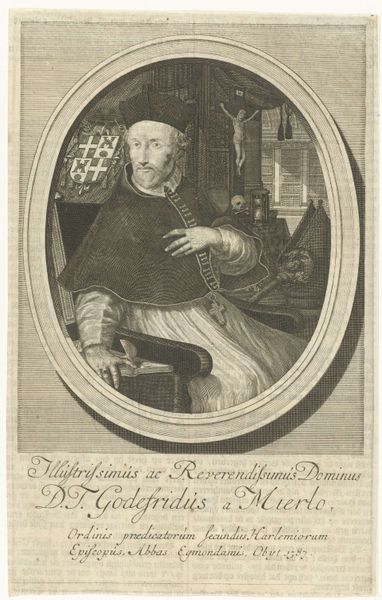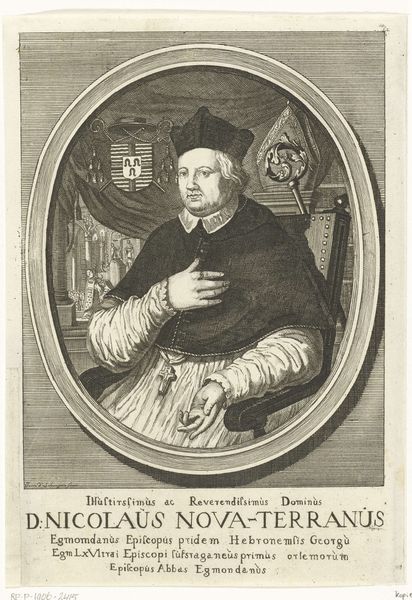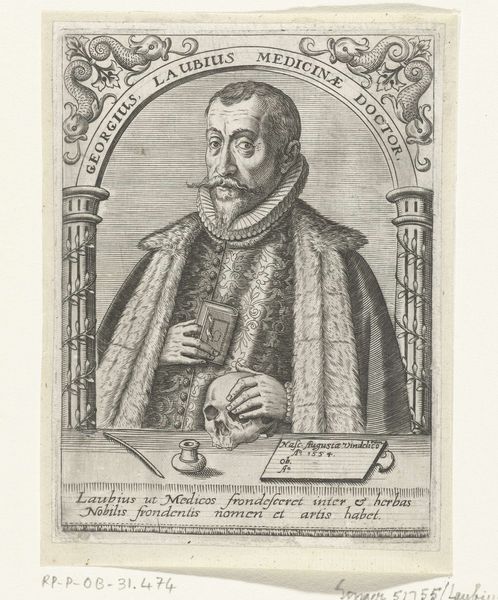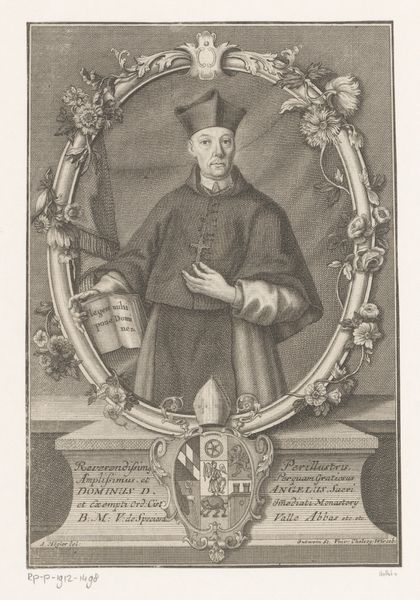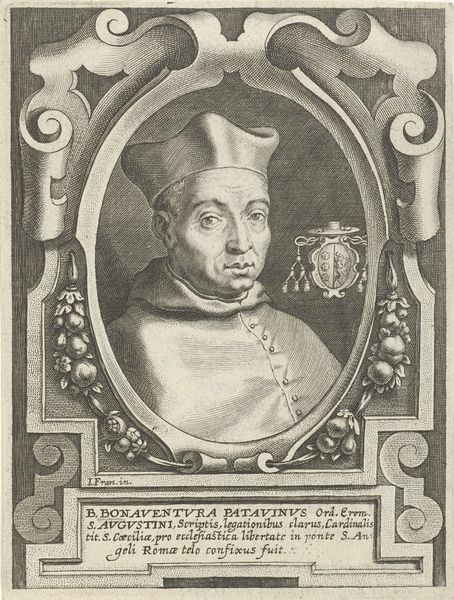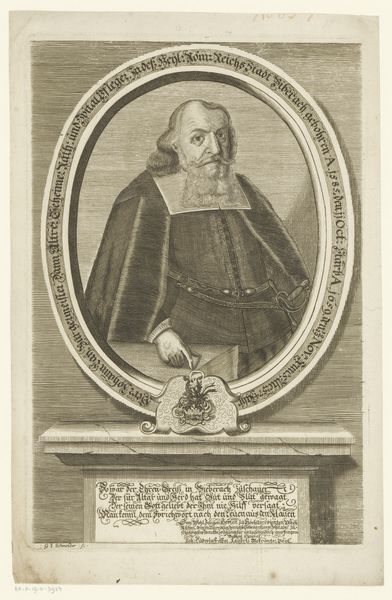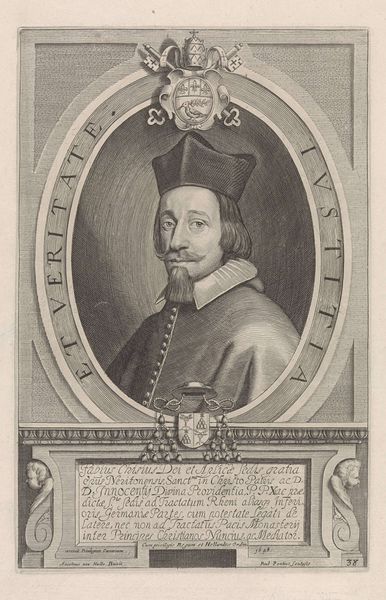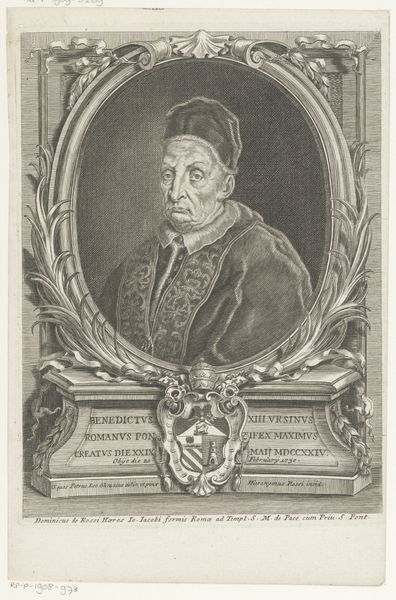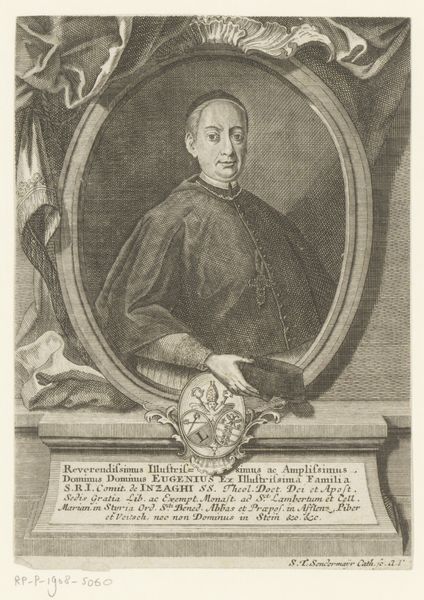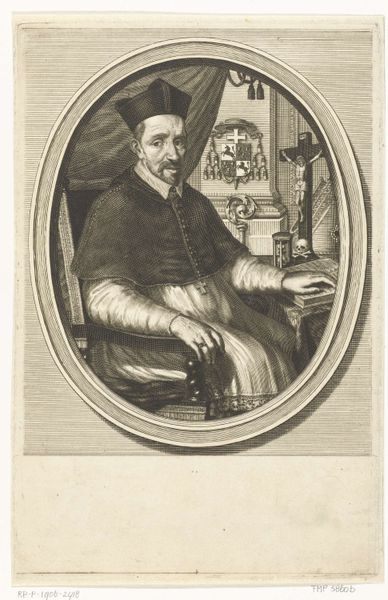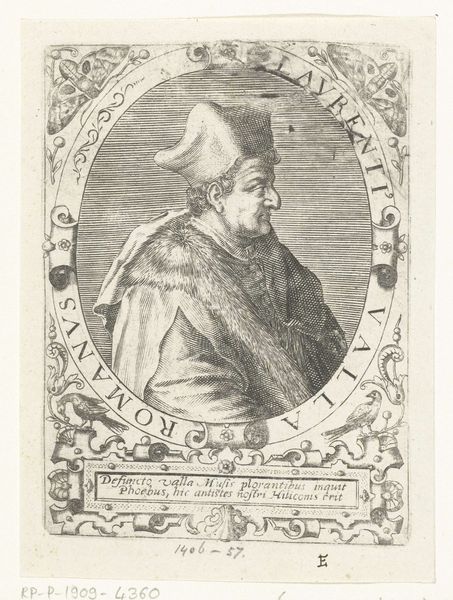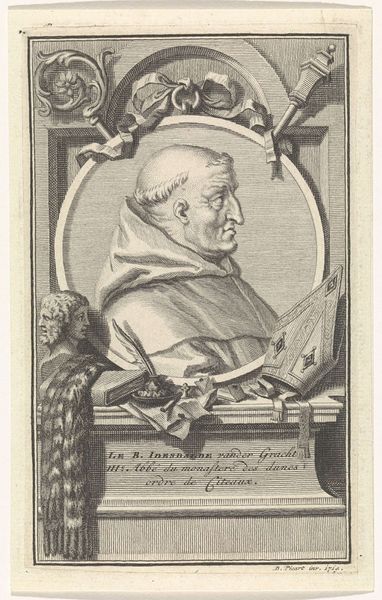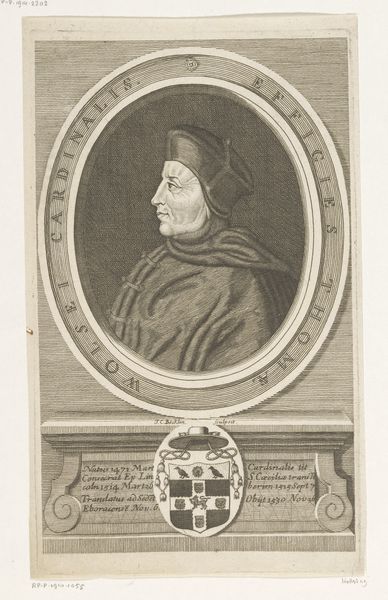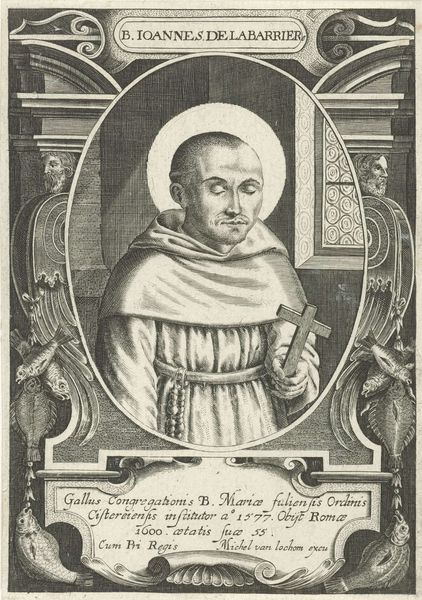
Portret van apostolisch vicaris Filips van Rouveen (Philippus Rovenius) 1681 - 1726
0:00
0:00
francoisvanbleyswijck
Rijksmuseum
print, intaglio, engraving
#
portrait
#
baroque
# print
#
intaglio
#
history-painting
#
engraving
Dimensions: height 239 mm, width 155 mm
Copyright: Rijks Museum: Open Domain
This print of Philippus Rovenius was made by François van Bleyswijck, probably in the early 18th century. It is an etching, a process involving the use of acid to bite lines into a metal plate, which is then inked and printed. Look closely, and you will see the characteristic lines, each one patiently drawn by the artist. Etchings like this were essentially reproductive technologies – ways of creating multiple images of a single subject. They catered to a growing market for portraits, especially of public figures. Consider the labor involved; while not as arduous as weaving or bricklaying, etching required considerable skill and time. This contrasts with today's digital printing, where images are created and replicated with minimal effort. Appreciating the materiality of this print – the paper, the ink, and the etched lines – allows us to reflect on the value we assign to handmade versus machine-made images, and the shifting economics of visual culture.
Comments
No comments
Be the first to comment and join the conversation on the ultimate creative platform.
